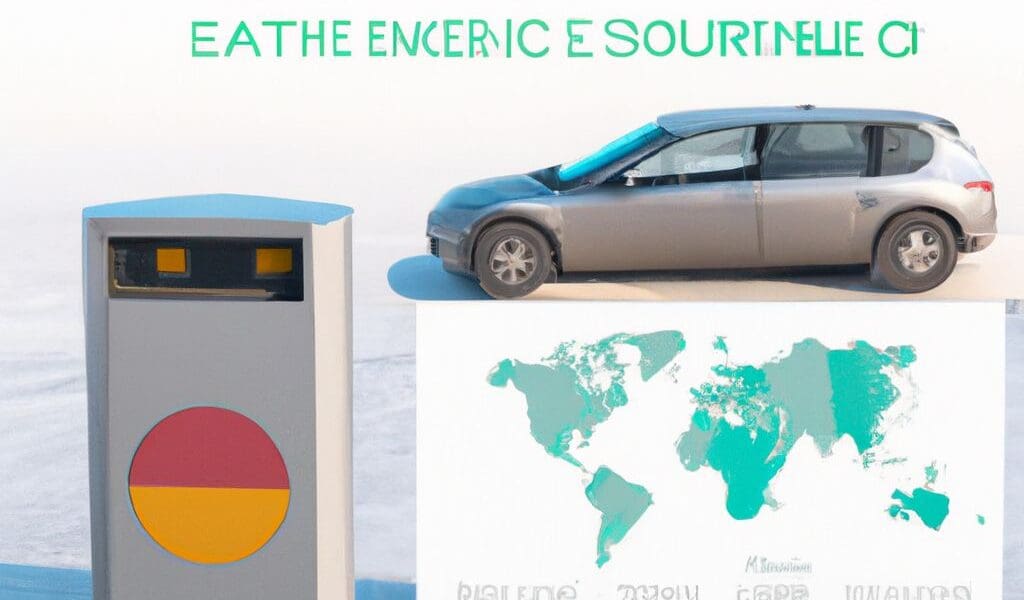Understanding the Impact of EU's Probe into Chinese Electric Vehicle Subsidies
In recent months, discussions surrounding the electric vehicle (EV) market have intensified, particularly focusing on the European Union’s examination of possible subsidy advantages that Chinese manufacturers may enjoy. The implications of this scrutiny may significantly affect both the global automotive industry and local markets within Europe.
The EU’s Investigation
The European Union has initiated an investigation into the competitive pricing of Chinese electric vehicles, primarily driven by suspicions that these vehicles benefit from unfair subsidies provided by the Chinese government. EU officials are concerned that such practices threaten the sustainability of European manufacturers, who may struggle to compete against cheaper imports. The EU’s probe is expected to culminate in the imposition of tariffs that could last for up to five years. A preliminary decision is anticipated by October 30, 2024.
This examination comes at a time when the European automobile market is transitioning towards electrification at an accelerated pace. The shift has been largely prompted by ambitious goals set by the EU to reduce carbon emissions, making EVs a crucial element of the region’s environmental strategy.
The Stakes for European Automakers
European automotive manufacturers, such as Volkswagen and BMW, are ramping up their EV productions. However, they face challenges from lower-priced Chinese alternatives, which have gained traction in Europe due to aggressive pricing strategies enabled by substantial government subsidies.
For instance, companies like BYD and NIO have made headlines with their competitively priced electric cars that do not compromise on technology or features. These brands are often perceived as direct competitors that threaten the viability of traditional European car manufacturers. If the EU decides to implement tariffs in response to this competitive threat, it could reduce the influx of these vehicles, allowing local manufacturers a better chance to secure their market share.
An Example from the Industry
A particular case that illustrates this situation is that of BYD, which has quickly become a powerhouse in the global EV market. Its success is attributed to lower operational costs due to domestic subsidies in China, enabling the company to undercut prices. Reports suggest that BYD’s aggressive pricing strategy has resulted in increased sales across major European markets, further intensifying the scrutiny from the EU.
Moreover, the rapid growth of BYD and similar manufacturers often forces European automakers to consider significant adjustments in their strategy, such as revising production costs, innovating to enhance vehicle offerings, or even exploring partnerships to increase competitiveness.
Global Implications
The EU’s investigation could lead to broader consequences beyond just the European market. If tariffs are put in place, they may incite retaliatory measures from the Chinese government. This back-and-forth could provoke a trade war that impacts various sectors beyond automobiles, affecting everything from technology to consumer goods.
Additionally, it is essential to note that such tariffs, while potentially protective for local industries, could also lead to higher prices for consumers in Europe. An increase in EV prices might deter potential buyers, slowing down the momentum toward achieving Europe’s environmental targets.
Future Considerations
The unfolding events emphasize the need for strategic planning by both European and Chinese automakers. For European brands, prioritizing innovation, enhancing production efficiency, and leveraging local supply chains to reduce costs can play a significant role in combating external pressures.
On the other hand, Chinese manufacturers may need to reassess their pricing models and consider the potential risks of relying heavily on government subsidies. Building a reputation for quality and sustainability could offset the financial advantages they currently possess.
In conclusion, the EU’s examination of subsidies afforded to Chinese electric vehicle manufacturers could reshape the automotive landscape significantly. It presents a critical juncture not only for European manufacturers but for global trade dynamics.
The outcome of this situation will influence competitive strategies and potentially drive collaborations that can redefine the electric vehicle market globally.
EVs are no longer merely a trend; they signify the future of transportation, and how we navigate these challenges will determine how we drive into that future.








